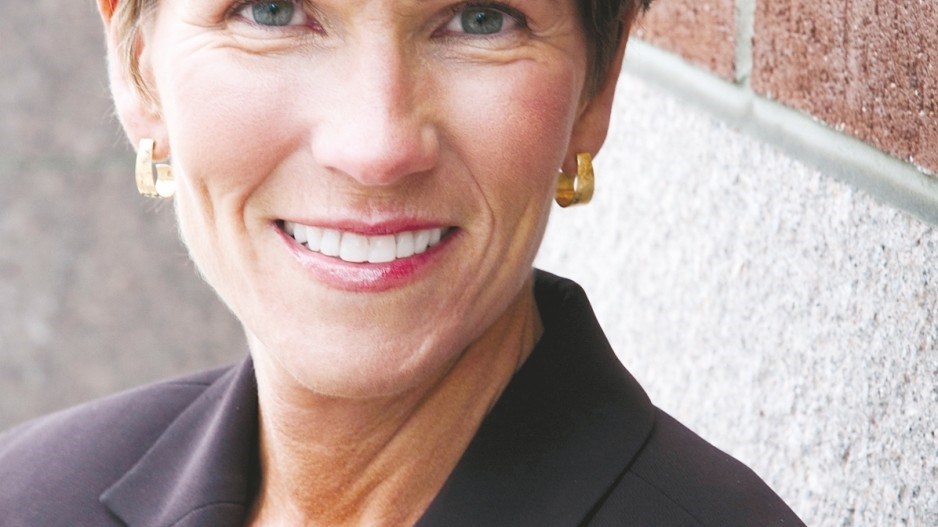Kim Baird is no stranger to success. As the first chief in B.C.'s history to effectively negotiate an urban treaty with the B.C. and federal governments, the leader of the Tsawwassen First Nation (TFN) knew what it took to cut a trail through a political and social landscape that many others had previously failed to navigate.
Baird spoke March 15 at a breakfast panel presented by the Women's Executive Network, which supports and promotes women in business.
Also speaking were Sue Paish, CEO for Pharmasave Drugs (National) Ltd. and Gail Stephens, city manager of Victoria. All three had previously been voted as one of Canada's top 100 women in business
Baird, who is also a director of BC Hydro, told attendees about her vision and the resolve that helped her achieve it.
"Taking strength from my culture and keeping an open mind was a great place to start," she said when asked by an audience member what drove her to continue despite years of failed negotiations, unsuccessful treaty drafts and numerous unproductive votes. "My goal has always been to see the same socio-economic conditions inside my community as I see outside of it."
The clarity of that vision led Baird and the TFN in 2009 to form its Economic Development Corporation. Part of their plan for the community's economic future included construction of a 1.2 million-square-foot shopping mall on TFN land, a proposal whose vote met with an overwhelming 97% agreement from TFN members.
It's the same sort of vision and resolve that characterized Paish's path to success, a route that initially led her down the halls of a predominantly male corporate environment to eventually become Pharmasave's CEO.
A graduate of UBC in both law and commerce, she worked for a large international law firm prior to falling in love with the business management side of the firm's operations. She recalled how one afternoon in the '80s she shocked a group of the firm's partners who stood in her office doorway and told her she had just made partner.
"I have to think about it," came her unprecedented response.
Family was always first for her, despite the professional implications.
"Having children throughout my career definitely put me against the tide," she told the breakfast group that was comprised, but for three or four exceptions, entirely of women. "Being completely honest about the priority I placed on my home life was the best way to foster understanding among my co-workers."
According to Paish, the ability to accommodate change was one of her keys to success. She said her 2007 move to Pharmasave, which, with $1.2 billion in sales is Canada's largest group of member-owned and governed pharmacies, happened at a time when the health-care industry was facing massive change.
At a young age, she developed the ability to adapt. When she was nine, her parents, disenchanted with the education system in Canada, sent her on a solo flight to meet family in England and to obtain a more traditional British education.
"You learn to be very resilient, to accept a huge amount of change, to digest it very quickly and, consequently, to anticipate it."
Stephens was educated as a CGA and early in her career worked in finance. After catching the attention of the mayor of Winnipeg, she was asked to become the city's, and Canada's, first female chief administrative officer. She quickly brought floundering public approval up to 92%.
Stephens spoke of the power of change and the importance of people.
"Real transformation only happens if you win the hearts of the employees," she said. When she was CEO of the BC Pension Corporation, she raised previously low satisfaction ratings among the corporation's trustees to 100%. She did this, she said, by having a clear vision of her end goal and by valuing the concept of working as a team.
"I believe firmly that the elements required to transform an organization are the same in the private sector, the public sector, the not-for-profit sector," she said. "It's all about engaging people." •




